Columbus: (614) 866-2477
Gahanna: (614) 939-9330
Lancaster: (740) 653-2656
Newark: (740) 344-8286
North Gahanna: (614) 478-2111
East Columbus: (614) 235-2323
Westerville: (614) 939-9330
Dublin: (614) 339-2000
Pickerington: (614) 545-4321
Lancaster: (740) 653-2656
Items filtered by date: January 2024
Do Your Child's Feet Hurt?
Gentle Exercises for Foot Arthritis
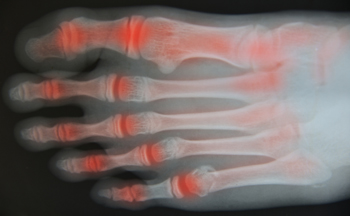
Foot arthritis, a condition marked by inflammation of the joints, can be challenging, but incorporating targeted exercises into your routine can offer relief and improve mobility. Toe taps, where you gently tap your toes on the floor, promote flexibility and circulation in the joints. Ankle circles, rotating your ankles in both directions, can help to maintain joint mobility. Towel curls involve scrunching a towel with your toes, which can strengthen the muscles in your feet. Toe stretches, where you use your hands to gently stretch your toes, can alleviate tension. Additionally, calf stretches and heel raises contribute to overall foot strength and stability. Water exercises, such as gentle swimming or water aerobics, provide a low-impact yet effective workout. It is important to be consistent as these gentle exercises can play a significant role in managing foot arthritis, fostering flexibility, and enhancing the overall well-being of your feet. If you would like to learn about additional stretches that can help foot arthritis, it is suggested that you consult a podiatrist.
Arthritis can be a difficult condition to live with. If you are seeking treatment, contact one of our podiatrists from Foot & Ankle Specialists of Central Ohio. Our doctors can provide the care you need to keep you pain-free and on your feet.
Arthritic Foot Care
Arthritis is a joint disorder that involves the inflammation of different joints in your body, such as those in your feet. Arthritis is often caused by a degenerative joint disease and causes mild to severe pain in all affected areas. In addition to this, swelling and stiffness in the affected joints can also be a common symptom of arthritis.
In many cases, wearing ill-fitting shoes can worsen the effects and pain of arthritis. Wearing shoes that have a lower heel and extra room can help your feet feel more comfortable. In cases of rheumatoid arthritis, the arch in your foot may become problematic. Buying shoes with proper arch support that contour to your feet can help immensely.
Alleviating Arthritic Pain
- Exercises that stretch the foot can prevent further pain and injury and increase mobility
- Most of the pain can be alleviated with anti-inflammatory drugs, heat, and topical medications
- Massages can help temporarily alleviate pain.
It is best to see your doctor for the treatment that is right for your needs and symptoms. Conditions vary, and a podiatrist can help you determine the right method of care for your feet.
If you have any questions, please feel free to contact our offices located in Gahanna, Newark, Columbus, and Lancaster, OH . We offer the newest diagnostic tools and technology to treat your foot and ankle needs.
Common Reasons Why Feet Can Swell
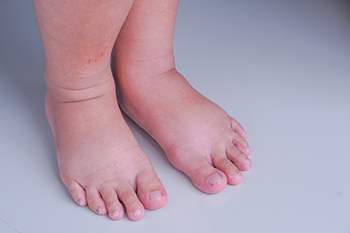
Swollen feet, or edema, can disrupt daily life. This condition often has a spectrum of common causes that individuals should be attuned to for timely intervention and relief. Prolonged periods of standing or sitting, especially in positions that impede healthy blood circulation, can lead to fluid retention, resulting in swollen feet. Another frequent contributor is the choice of footwear, with ill-fitting shoes or high heels imposing pressure that hinders proper blood flow. Injuries, such as sprains or fractures, can trigger inflammation and swelling in the affected area. Underlying medical conditions, including venous insufficiency, arthritis, or heart failure, may manifest in swollen feet. Hormonal changes during pregnancy often result in fluid retention, causing noticeable swelling in the feet and ankles. Lifestyle factors, like a diet high in sodium, can exacerbate fluid retention. Swollen feet can be uncomfortable, and if you have this condition, it is suggested that you visit a podiatrist who can accurately determine the cause, and offer appropriate treatment tips.
Swollen feet can be a sign of an underlying condition. If you have any concerns, contact one of our podiatrists of Foot & Ankle Specialists of Central Ohio. Our doctors can provide the care you need to keep you pain-free and on your feet.
Swollen feet are a common ailment among pregnant women and people who stand or sit for extended periods. Aging may increase the possibility of swollen feet and patients who are obese often notice when their feet are swelling too. There may be medical reasons why swollen feet occur:
- Phlebitis - A condition that causes the veins to become inflamed and can also cause leg pain.
- Liver disease - This may lead to low blood levels of albumin which is a protein. This can cause fluid in the blood to pass into the tissues and several areas of the body can become swollen.
- Heart failure - When the heart doesn’t pump properly the blood that is normally pumped back to the heart can pool in the veins of the legs causing swollen feet.
- Kidney disease - One of the main functions of the kidneys is releasing excess fluid in the body. This type of condition can make it difficult for the kidneys to function properly, and as a result the feet may become swollen.
- Deep-vein thrombosis (DVT)- This is a serious condition where blood clots form in the veins of the legs. They can block the return of blood from the legs to the heart which may cause the feet to swell. It is important to be treated by a podiatrist if this condition is present.
Swollen feet can also be caused by bone and tendon conditions, including fractures, arthritis, and tendinitis. Additionally, there may be skin and toenail conditions and an infection may cause the feet to swell. Patients who take medicine to treat high blood pressure may be prone to getting swollen feet.
Many patients elevate their feet to help relieve the swelling and this is generally a temporary remedy. When a podiatrist is consulted the reason behind the swelling can be uncovered and subsequently treated.
If you have any questions please feel free to contact our offices located in Gahanna, Newark, Columbus, and Lancaster, OH . We offer the newest diagnostic tools and technology to treat your foot and ankle needs.
Symptoms and Causes of Plantar Warts
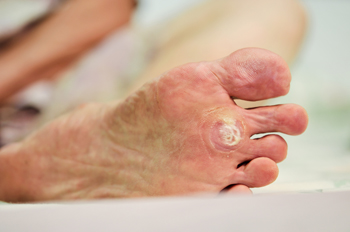
Plantar warts, small growths on the soles of the feet caused by the human papillomavirus, abbreviated HPV, are not only a common ailment but also a source of discomfort for many people. These warts often appear as rough, grainy lesions with tiny black dots, known as seed warts, indicative of tiny blood vessels within. The pressure exerted on the soles of the feet, particularly during walking or standing, can cause plantar warts to embed themselves deeper into the skin, contributing to the characteristic pain associated with these growths. Causes of plantar warts include direct contact with the HPV virus, which thrives in warm and moist environments such as locker rooms or public showers. Understanding the symptoms, such as tenderness or the presence of small, fleshy lesions on the soles, and the potential causes of plantar warts is essential for timely identification and appropriate treatment. If you have developed a plantar wart, it is strongly suggested that you schedule an appointment with a podiatrist who can guide you toward correct treatment methods.
Plantar warts can be very uncomfortable. If you need your feet checked, contact one of our podiatrists from Foot & Ankle Specialists of Central Ohio. Our doctors will assist you with all of your foot and ankle needs.
About Plantar Warts
Plantar warts are the result of HPV, or human papillomavirus, getting into open wounds on the feet. They are mostly found on the heels or balls of the feet.
While plantar warts are generally harmless, those experiencing excessive pain or those suffering from diabetes or a compromised immune system require immediate medical care. Plantar warts are easily diagnosed, usually through scraping off a bit of rough skin or by getting a biopsy.
Symptoms
- Lesions on the bottom of your feet, usually rough and grainy
- Hard or thick callused spots
- Wart seeds, which are small clotted blood vessels that look like little black spots
- Pain, discomfort, or tenderness of your feet when walking or standing
Treatment
- Freezing
- Electric tool removal
- Laser Treatment
- Topical Creams (prescription only)
- Over-the-counter medications
To help prevent developing plantar warts, avoid walking barefoot over abrasive surfaces that can cause cuts or wounds for HPV to get into. Avoiding direct contact with other warts, as well as not picking or rubbing existing warts, can help prevent the further spread of plantar warts. However, if you think you have developed plantar warts, speak to your podiatrist. He or she can diagnose the warts on your feet and recommend the appropriate treatment options.
If you have any questions please feel free to contact our offices located in Gahanna, Newark, Columbus, and Lancaster, OH . We offer the newest diagnostic and treatment technologies for all your foot and ankle needs.
Causes of Foot Pain From Running
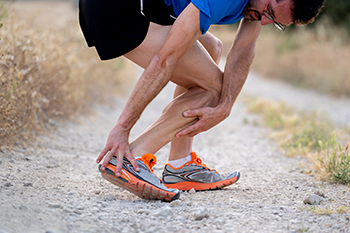
Embarking on a running journey often leads to foot discomfort, ranging from blisters due to friction or wet conditions to more serious injuries caused by repetitive impact. One cause of foot pain in runners is stress fractures, often the result of overuse or sudden mileage increase. Plantar fasciitis, another common cause, is characterized by heel pain resulting from increased mileage or improper shoe choices. Achilles tendonitis, another overuse injury, requires timely diagnosis and treatment by a podiatrist to prevent complications and chronic pain. Metatarsalgia, causing ball of foot pain, and Morton’s neuroma, marked by nerve enlargement between third and fourth toes, commonly cause pain in the metatarsal and toe area of the foot. Pain along the top of the foot may be linked to tightly laced shoes or other causes. Tibialis posterior tendonitis, causes throbbing or burning pain along the arch. Bunions, a deformity of the big toe, and hallux rigidus, or stiffness in the big toe, necessitate treatment from a podiatrist. It is always a good idea to address foot pain rather than to ignore it and keep running. If you are a runner experiencing foot pain, it is suggested that you schedule an appointment with a podiatrist for a thorough foot exam that will form the basis of an appropriate treatment plan.
Sports related foot and ankle injuries require proper treatment before players can go back to their regular routines. For more information, contact one of our podiatrists of Foot & Ankle Specialists of Central Ohio. Our doctors can provide the care you need to keep you pain-free and on your feet.
Sports Related Foot and Ankle Injuries
Foot and ankle injuries are a common occurrence when it comes to athletes of any sport. While many athletes dismiss the initial aches and pains, the truth is that ignoring potential foot and ankle injuries can lead to serious problems. As athletes continue to place pressure and strain the area further, a mild injury can turn into something as serious as a rupture and may lead to a permanent disability. There are many factors that contribute to sports related foot and ankle injuries, which include failure to warm up properly, not providing support or wearing bad footwear. Common injuries and conditions athletes face, including:
- Plantar Fasciitis
- Plantar Fasciosis
- Achilles Tendinitis
- Achilles Tendon Rupture
- Ankle Sprains
Sports related injuries are commonly treated using the RICE method. This includes rest, applying ice to the injured area, compression and elevating the ankle. More serious sprains and injuries may require surgery, which could include arthroscopic and reconstructive surgery. Rehabilitation and therapy may also be required in order to get any recovering athlete to become fully functional again. Any unusual aches and pains an athlete sustains must be evaluated by a licensed, reputable medical professional.
If you have any questions please feel free to contact our offices located in Gahanna, Newark, Columbus, and Lancaster, OH . We offer the newest diagnostic and treatment technologies for all your foot and ankle needs.
Definition and Symptoms of Rheumatoid Arthritis
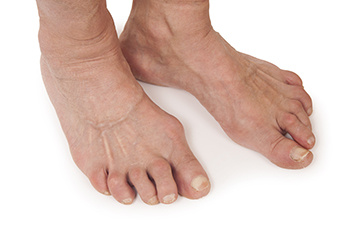
Rheumatoid arthritis, or RA, is a chronic autoimmune disorder that primarily affects the joints, causing inflammation, pain, and potential deformities. The feet can be affected, and this condition occurs when the immune system mistakenly attacks the synovium, which is the lining of the membranes surrounding the joints. Inflammation triggered by RA can lead to joint damage over time, impacting various joints symmetrically. Symptoms of rheumatoid arthritis include joint pain, swelling, and stiffness, typically most pronounced in the mornings or after periods of inactivity. The affected joints may feel warm to the touch, and over time, individuals with RA may experience reduced joint function and mobility. Beyond joints, RA can affect other organs, leading to fatigue, fever, and weight loss. If you have RA, it is strongly suggested that you are under the care of a podiatrist who can implement effective management strategies so relief can be found.
Because RA affects more than just your joints, including the joints in your feet and ankles, it is important to seek early diagnosis from your podiatrist if you feel like the pain in your feet might be caused by RA. For more information, contact one of our podiatrists of Foot & Ankle Specialists of Central Ohio. Our doctors will assist you with all of your podiatric concerns.
What Is Rheumatoid Arthritis?
Rheumatoid Arthritis (RA) is an autoimmune disorder in which the body’s own immune system attacks the membranes surrounding the joints. Inflammation of the lining and eventually the destruction of the joint’s cartilage and bone occur, causing severe pain and immobility.
Rheumatoid Arthritis of the Feet
Although RA usually attacks multiple bones and joints throughout the entire body, almost 90 percent of cases result in pain in the foot or ankle area.
Symptoms
- Swelling and pain in the feet
- Stiffness in the feet
- Pain on the ball or sole of feet
- Joint shift and deformation
Diagnosis
Quick diagnosis of RA in the feet is important so that the podiatrist can treat the area effectively. Your doctor will ask you about your medical history, occupation, and lifestyle to determine the origin of the condition. Rheumatoid Factor tests help to determine if someone is affected by the disease.
If you have any questions please feel free to contact our offices located in Gahanna, Newark, Columbus, and Lancaster, OH . We offer the newest diagnostic and treatment technologies for all your foot and ankle needs.
Blog Archives
- April 2024
- March 2024
- February 2024
- January 2024
- December 2023
- November 2023
- October 2023
- September 2023
- August 2023
- July 2023
- June 2023
- May 2023
- April 2023
- March 2023
- February 2023
- January 2023
- December 2022
- November 2022
- October 2022
- September 2022
- August 2022
- July 2022
- June 2022
- May 2022
- April 2022
- March 2022
- February 2022
- January 2022
- December 2021
- November 2021
- October 2021
- September 2021
- August 2021
- July 2021
- June 2021
- May 2021
- April 2021
- March 2021
- February 2021
- January 2021
- December 2020
- November 2020
- October 2020
- September 2020
- August 2020
- July 2020
- June 2020
- May 2020
- April 2020
- March 2020
- February 2020
- January 2020
- December 2019
- November 2019
- October 2019
- September 2019
- August 2019
- July 2019


